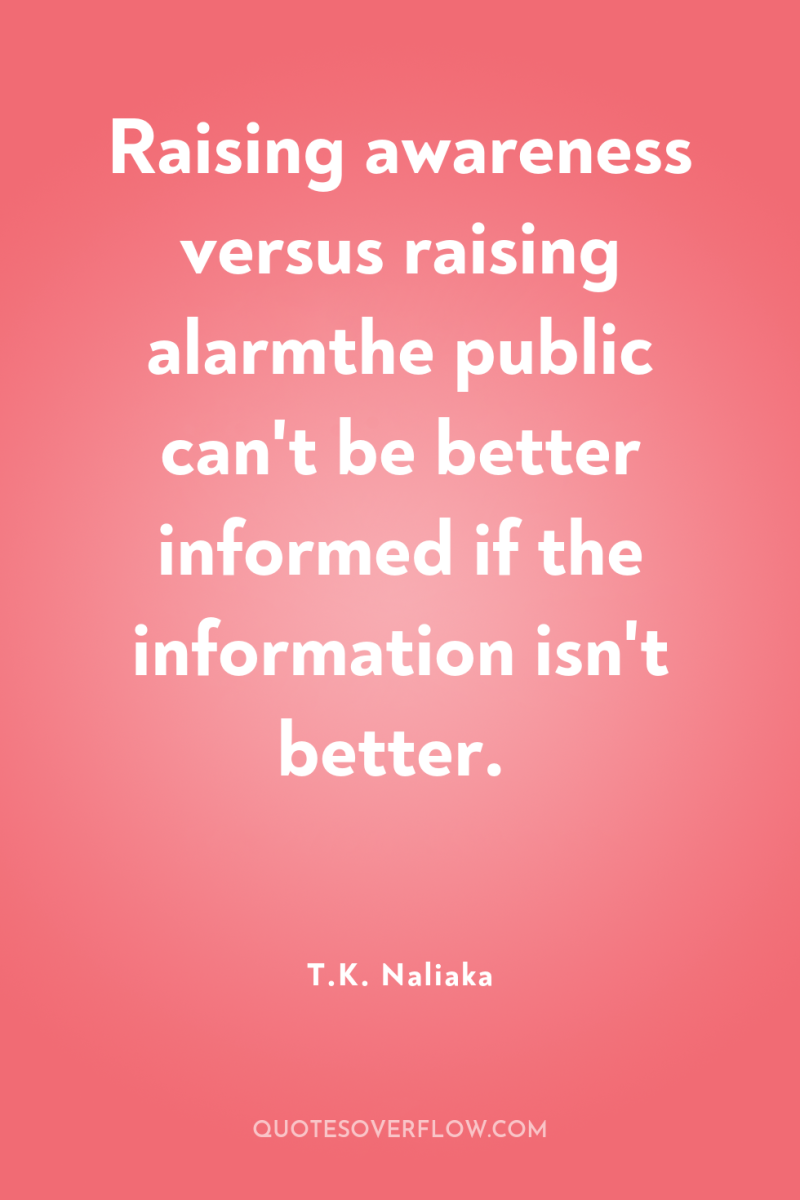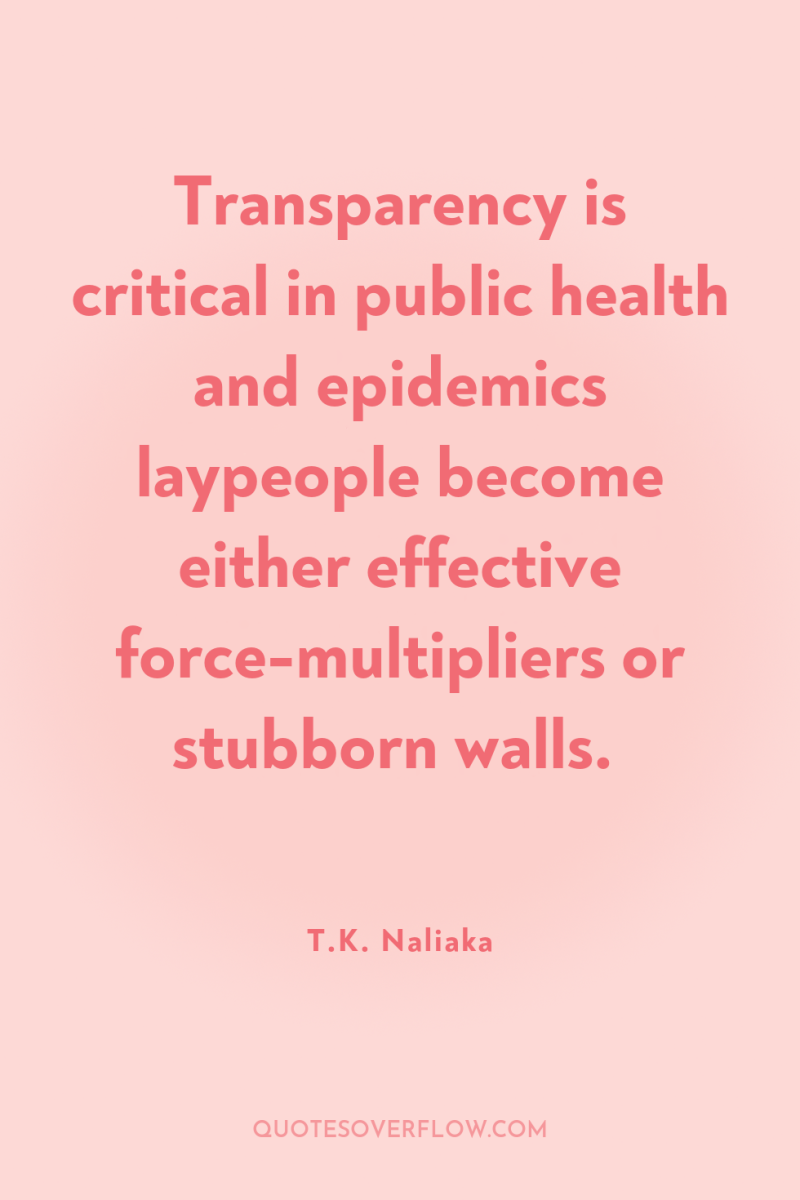
1
Raising awareness versus raising alarmthe public can't be better informed if the information isn't better.T.K. Naliaka

2
Transparency is critical in public health and epidemics laypeople become either effective force-multipliers or stubborn walls.T.K. Naliaka
3
The history of interactions among disparate peoples is what shaped the modern world through conquest, epidemics and genocide. Those collisions created reverberations that have still not died down after many centuries, and that are actively continuing in some of the world's most troubled areas.Jared Diamond
4
My dear Gorgas, Instead of being simply satisfied to make friends and draw your pay, it is worth doing your duty, to the best of your ability, for duty’s sake; and in doing this, while the indolent sleep, you may accomplish something that will be of real value to humanity. Your good friend, ReedDr. Walter Reed encouraging Dr. William Gorgas who went on to make history eradicating Yellow Fever in Havana, 1902 and Panama, 1906, liberating the entire North American continent from centuries of Yellow Fever epidemics. .William Crawford Gorgas
5
Most world-historic events - great military battles, political revolutions-are self-consciously historic to the participants living through them. They act knowing that their decisions will be chronicled and dissected for decades or centuries to come. But epidemics create a kind of history from below: they can be world-changing, but the participants are almost inevitably ordinary folk, following their established routines, not thinking for a second about how their actions will be recorded for prosperity. And of course, if they do recognize that they are living through a historical crisis, it's often too late- because, like it or not, the primary way that ordinary people create this distinct genre of history is by dying. .Steven Johnson
6
The women in the kitchen sang: Sarampión toca la puerta. Viruela dice: ¿Quién es? Y Escarlatina contesta: ¡Aquà estamos los tres! The cook would sometimes shout a little madly, “Sing it again! ” And the women would sing again: Measles knocks at the door. Smallpox asks, Who’s there? And Scarlet Fever replies: All three of us are here!Sharman Apt Russell
7
The electrical, electronics and wireless radio frequency (RF) industries are creating an increasingly high radiation environment for the human. This is comparable to the elevated radiation environment found at high altitudes and smart health researchers would be wise to contrast high altitude diseases to the epidemics of our time, such as Autism, Attention Deficit Disorder (ADD), Fibromyalgia, Electromagnetic Hypersensitivity (EHS), and so on.Steven Magee
8
In times of stress and danger such as come about as the result of an epidemic, many tragic and cruel phases of human nature are brought out, as well as many brave and unselfish ones.William Crawford Gorgas
9
Eradicating mosquitoes is a means to an end. An uninfected mosquito is harmless to humans - just a nuisance. An infected mosquito is a danger.T.K. Naliaka
10
It's striking that Native Americans evolved no devastating epidemic diseases to give to Europeans in return for the many devastating epidemic diseases that Indians received from the Old World.Jared Diamond
11
Will 2015 ever be noted as the year Ebola was decisively downgraded from a lurid horror meme to just one of many commonly treatable diseases?T.K. Naliaka
12
To take a specific example, a researcher in the Journal of Traumatic Stress interviewed 129 women with documented histories of child sexual abuse that occurred between the ages of 10 months and 12 years. Of those, 38 percent had forgotten the abuse. Of the remaining women who remembered, 16 percent reported that they had for a period of time forgotten but subsequently recovered their memories. [46] Thus, during that time a "false negative" recorded for those women. These are the sort of distinctions for which Elaine Showalter in Hystories: Hysterical Epidemics and Modern Media fails to account.Janet Walker